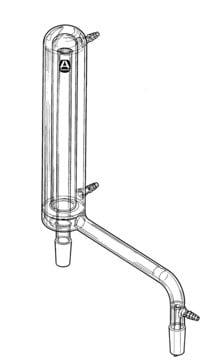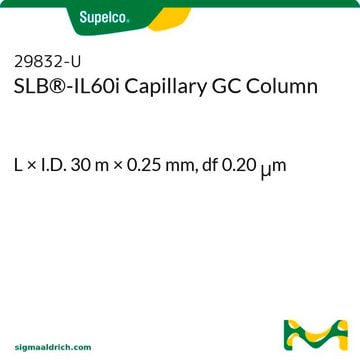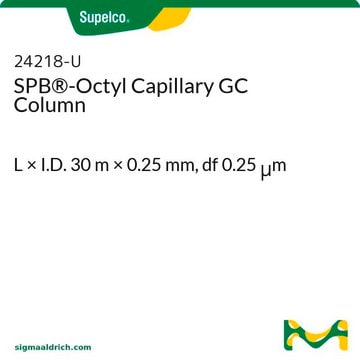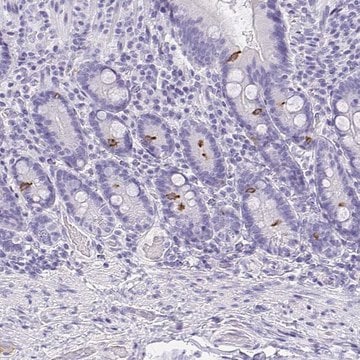24233-U
SPB®-Octyl Capillary GC Column
L × I.D. 60 m × 0.25 mm, df 1.00 μm
About This Item
Recommended Products
material
fused silica
Quality Level
Agency
EPA 1668
suitable for EPA 1613
parameter
-60-280 °C temperature (isothermal or programmed)
Beta value
63
df
1.00 μm
technique(s)
gas chromatography (GC): suitable
L × I.D.
60 m × 0.25 mm
matrix active group
Bonded; poly(50% n-octyl/50% methyl siloxane) phase
application(s)
environmental
food and beverages
column type
capillary non-polar
Looking for similar products? Visit Product Comparison Guide
General description
USP Code: None
Phase:
- Bonded
- Poly(50% n-octyl/50% methyl siloxane)
- ≤0.32 mm I.D.: -60 °C to 280 °C (isothermal or programmed)
- ≥0.53 mm I.D.: -60 °C to 260 °C (isothermal or programmed)
Application
Other Notes
Legal Information
Choose from one of the most recent versions:
Already Own This Product?
Find documentation for the products that you have recently purchased in the Document Library.
Related Content
This page is intended to make it easier to find the consumables you need based on the analytical method you’re using. Methods included on this page come from the EPA, Standard Methods and ASTM.
This page is intended to make it easier to find the consumables you need based on the analytical method you’re using. Methods included on this page come from the EPA, Standard Methods and ASTM.
This page is intended to make it easier to find the consumables you need based on the analytical method you’re using. Methods included on this page come from the EPA, Standard Methods and ASTM.
This page is intended to make it easier to find the consumables you need based on the analytical method you’re using. Methods included on this page come from the EPA, Standard Methods and ASTM.
Our team of scientists has experience in all areas of research including Life Science, Material Science, Chemical Synthesis, Chromatography, Analytical and many others.
Contact Technical Service








